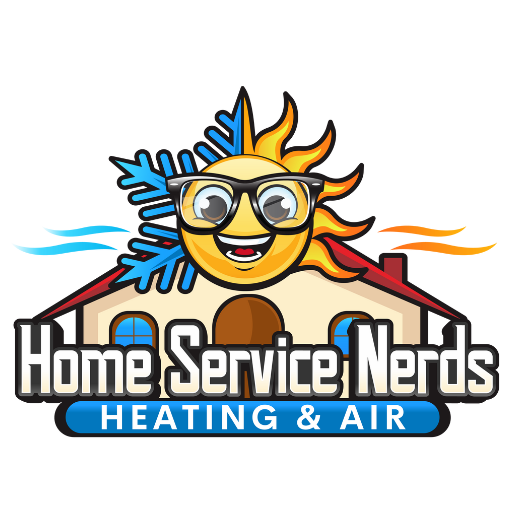
Are you looking to upgrade your HVAC system but worried about the cost? While it’s true that converting an HVAC system can cost thousands of dollars, it’s an investment that pays off in the long run. On average, you’re likely to recoup more than 100% of your initial costs over time through improved energy efficiency and lower bills. But there’s even better news: you may be eligible for an income-based rebate program designed to assist low-income families in upgrading their HVAC systems. These programs can significantly reduce the financial burden, making it more affordable for you to enjoy the benefits of a new, efficient HVAC system.
Understanding Income-Based Rebate Programs for HVAC Replacements
Income-based rebate programs for HVAC systems are indeed a game-changer for low-income families, as they help make heating, and cooling systems more affordable. But what exactly are these programs, and how do they work?
In 2022, the federal Inflation Reduction Act (IRA) became law, including more than $8 billion in federal funding for state-administered, consumer home energy rebate programs which will be administered by individual states.
These income-based rebate programs are designed to help homeowners with lower incomes afford necessary home improvements, including HVAC replacements. Unlike tax credits, which are taken into account as part of your annual federal tax return, rebate programs generally pay out quicker as the project itself is completed, allowing homeowners to offset a significant portion of the cost. They are considered “income based” because the amount of the rebate is typically based on your income level and the type of system being replaced.
As an example, South Carolina is planning to administer two of these rebate programs in 2024: the “Home Energy Performance Based, Whole House Rebates (HOME rebates)” and the “High Efficiency Electric Home rebates”.
Home Energy Performance Based, Whole House Rebates (HOME Rebates)
With the HOME program, homeowners could receive rebates for retrofits between $2000 and $4000 for individual households, based on the amount of energy savings that the new installation provides. But it gets even better if you have low- to moderate- income for your area. Low- to moderate- income homes may qualify for double the maximum rebate amount (meaning rebates would be between $4,000 and $8,000 depending on the energy savings). And while this program is shaping up nicely to support HVAC upgrades, there’s no indication that the HOME program will apply retroactively.
High Efficiency Electric Home rebates
Meanwhile, the High Efficiency Electric Home rebate delivers returns as a percentage of the project cost based on household income. This rebate could be 50% to 100% of the project cost depending on your income and the systems that are being installed. As good as this sounds, this program WILL NOT cover retroactively, meaning to take advantage of this rebate, you’ll need to wait on that HVAC project until the High Efficiency Electric Home rebate is fully established in SC.
Weatherization Assistance Program
In addition to these, residents might also explore the Weatherization Assistance Program, a federally-funded initiative dedicated to promoting energy efficiency in homes. This program can complement the state’s efforts by providing additional support in weatherizing homes, which is particularly beneficial in enhancing the effectiveness of new heating and cooling equipment installed under the HOME and High Efficiency Electric Home rebate programs.
Free Air Conditioner Programs
Free Air Conditioner Programs are a vital resource for households striving to maintain comfort without escalating energy costs. These programs, often supported by government initiatives like LIHEAP (Low Income Home Energy Assistance Program), provide air conditioners and new HVAC systems to those who qualify, focusing primarily on low-income families. The advantage of these programs extends beyond mere comfort; they introduce energy-efficient systems into homes, leading to significant monthly energy savings. With the aid of these energy-efficient systems, families can reduce their carbon footprint while managing their energy expenses more effectively.
IMPORTANT NOTE:
While South Carolina does not currently offer these programs, both the HOME rebates and High Efficiency Electric Home Rebates are in the development stages. We at Home Service Nerds will continue to update our website with more information about HVAC for low-income families and their start dates as it becomes available.
Qualifying for Rebates: Income Requirements and Other Eligibility Criteria
To qualify for HVAC programs for low income families, you’ll need to meet certain income requirements and other eligibility criteria. Each program has its own set of guidelines, but generally, they target households with lower to moderate incomes.
That means that primarily, eligibility criteria is based on income level, and programs typically have income thresholds that determine whether or not you qualify. The specific income limits will vary depending on the program and your location, so it’s important to check the guidelines of the program you’re interested in to see if you meet the income requirements.
In addition to income, other factors may also be considered. Some programs may require homeowners to be property owners, while others may have residency requirements. The age of your current HVAC system may also play a role in determining eligibility, as some programs may prioritize replacing older, less efficient systems with latest energy efficient equipment purchases.
To find out if you qualify for income-based rebate programs, it’s best to visit your state or local government website and look for information on available programs. Additionally, energy-efficient programs and organizations may provide resources and tools to help you determine your eligibility. If you’re not from South Carolina, definitely check those resources. For South Carolinians, we’ll continue to update our website with information about the programs we’ve already discussed as it becomes available.
Finding Available Rebate Programs: Resources and Tools for Homeowners
Finding available rebate programs for HVAC energy efficiency improvements for low-income families is easier than you might think. Many state and local government websites have resources and tools that can help you identify programs specific to your area, and many energy-efficient organizations often provide information on available rebates, as well. In addition, the U.S. Department of Energy has an information site for all states and programs available. It’s important to explore all the options to ensure you’re taking advantage of every opportunity to save.
Don’t forget to reach out to a licensed HVAC service provider as well, as they may have knowledge of or access to specific HVAC rebate programs for low-income families that can help you save money on your replacement. They may also be able to provide guidance on the application process and help you navigate the requirements.
Calculating Potential Savings: How Much Can You Expect to Save?

Calculating potential savings on your HVAC replacement is an essential step in determining if income-based HVAC upgrade rebate programs are worth pursuing. While the exact amount you can expect to save will vary depending on your specific circumstances, it’s helpful to have a general idea of what to expect.
On average, homeowners can save anywhere from 10% to 50% of the total cost of an HVAC replacement through income-based rebate programs. This can result in significant savings and make a big difference in the overall expense of upgrading your system. However, keep in mind that these savings are just estimates and can vary based on factors such as your income level, the type of system being replaced, and the specific program you’re eligible for.
In South Carolina, you can calculate the savings based on the following formulas provided by the S.C. Energy Office:
- Households with incomes about 80% of the Area Median Income qualify for 50% rebate on the project cost between $2000 and $4000, under the HOME Program, and 50% of project costs up to $14000 under the High Efficiency Electric Home rebate.
- Households with incomes below 80% of the Area Median Income qualify for 80% rebate on the project cost between $2000 and $4000, under the HOME Program, and 100% of project costs up to $14000 under the High Efficiency Electric Home rebate.
IMPORTANT NOTE:
While South Carolina DOES NOT currently offer this, both of these programs are in the development stages. These numbers are intended to be used as a tool to help you calculate potential rebates that would be available once the programs have been finalized. We (Home Service Nerds) will continue to update our website as more information about these programs and their start date becomes available.
To get a more accurate idea of your potential savings, it’s best to research the income-based rebate programs available in your area and review their specific guidelines. If you still have questions, or if you would like to know whether you qualify for the HVAC programs for low-income families, or what energy efficient appliances may be the best upgrade for your home, reach out to Home Service Nerds. We’d be honored to help you navigate the rebates available to you and bring your home systems up to date.
Remember, every dollar saved counts when it comes to upgrading your HVAC system. So, don’t hesitate to explore income-based rebate programs and take advantage of every opportunity to save money on energy costs.








